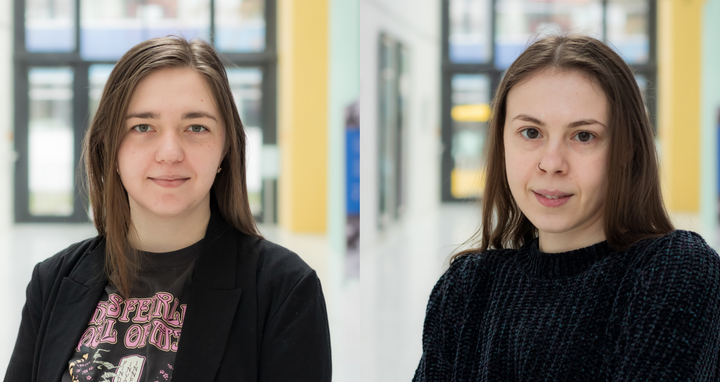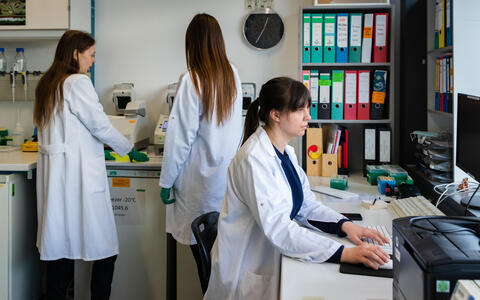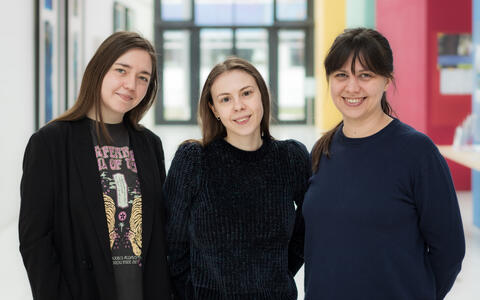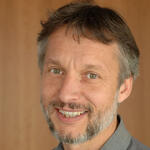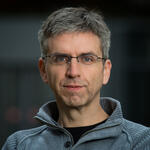“It is very hard to focus on science”
A year ago, Taisiia Kozak had planned to experiment with some heart cells for her PhD thesis at the Bogomoletz Institute of Physiology in Kyiv, Ukraine. Instead, on Feb. 24th, 2022, she found herself running from a war.
At 5 am, as Russian tanks rolled into Ukraine, Kozak received a phone call from a friend warning her about the invasion. Her roommate and colleague Tetiana Lahuta was on a train into Kyiv and could hear distant bombing. Lahuta saw people in a panic, carrying packages and crowding the train station. Once she got home, the roommates quickly packed up documents, lab samples and other valuables and left Kyiv.
A year later, Kozak and Lahuta are in Berlin, working at the Max Delbrück Center on a research fellowship that has allowed them to feel a sense of stability, even while hoping they can return soon to their loved ones and continue their PhDs. They are among an estimated 60,000 Ukrainian scientists who’ve been affected by the war, according to “Nature”. About 6,000 of them have left the country.
f.l.t.r.: Tetiana Lahuta, Taisiia Kozak and Alina Frolova
“Right now, I work in a very good laboratory, I meet different scientists, I am in the best place for research,” Lahuta says. “But when I know in my country, there is war, it is very hard to focus on science.”
Drawn to biology in middle school
Kozak and Lahuta became graduate students at the Bogomoletz Institute of Physiology in 2018, working in the lab of pathophysiologist Dr. Victor Dosenko. The roommates’ similarities did not end there; both were drawn to biology in middle school after growing up surrounded by nature and becoming curious about how the natural world worked. Kozak’s hometown Kostopil is surrounded by beautiful forests and lakes. Lahuta spent her summers on her grandmother’s farm in the village of Sloboda.
“I understood that when you do science, you can discover something new and create new knowledge,” Kozak says. “And it's interesting to be that person who creates something.”
For her Ph.D., Kozak chose to study the behavior of heart cells deprived of oxygen. She looked at how mitochondria and organelles called peroxisomes degrade in these conditions. Her research could help in the treatment of heart attacks and strokes.
Lahuta investigated the renin-angiotensin system, a hormonal system that is crucial in the regulation of the kidneys, heart, lungs and the overall blood flow. She was interested in lung disorders and experimented with the epigenetic system that controls genes in this pathway.
War was unimaginable
Their research progressed steadily even as the rhetoric from Russia interfering in eastern Ukraine’s Donetsk and Luhansk intensified. But war was unimaginable until it was there. “I was shocked that war can happen so spontaneously. But now I understand that it was not spontaneous,” Kozak says.
The main goal was to give people an opportunity to be part of the scientific community and keep on working. To give them some kind of normality during these times.
The scientists left for Lahuta’s grandmother’s farm on a road that happened to be safe. A fellow Masters student, Olena Kuch, in the chemistry department at Kyiv Mohyla Academy, together with her husband and baby chose a different, more popular route. Their car was shot by a Russian tank and Kuch died, Kozak says. “Everything felt illogical, unexpected,” she says. “Even that simple decision to choose the most popular road can mean that you survive or not.”
Two weeks later, the graduate students received an email from their advisor about temporary research positions for Ukrainian scientists at the lab of Arturo Zychlinksky, a geneticist at the Max Planck Institute for Infection Biology in Berlin. Lahuta and Kozak, together with three other female scientists, moved to Berlin. Men aged 18 to 62 are not allowed to leave the country during war.
At the Max Delbrück Center, the Ukraine crisis team had been brainstorming ways to help their colleagues in Ukraine. “The main goal was to give people an opportunity to be part of the scientific community and keep on working. To give them some kind of normality during these times,” says Feraye Kocaoglu, who was part of the crisis team.
Constant worries
They created positions for scientists who could obtain funding through a fellowship from the Volkswagen Foundation and invited researchers to submit their resumes. Out of nearly 90 applicants, they matched three graduate students with laboratories carrying out similar research. Kozak was assigned to the lab of Professor Michael Gotthardt, who studies the cardiovascular system, and Lahuta to Professor Michael Bader, who studies hormone systems related to cardiovascular function. Alina Frolova, another Ukrainian student, works with Professor Dominik Müller.
The students say their time in Berlin would feel better if there wasn’t a war back home. Lahuta worries constantly for her partner, brother, father and friends, who are all involved in the war in different roles. They struggle to keep in touch with loved ones as the electricity in Ukraine is unreliable. Kozak’s parents live in western Ukraine, where they have rolling blackouts for up to four hours daily. Still, that is better than in Kyiv and in the south and east, where power can fail for three days at a time, she says. “For other [people] I know, communicating is a very big problem,” she says.
The war has made it difficult to do much research in Ukraine, the students say. The power cuts make lab work challenging as electricity is needed to operate most instruments. There is also a threat to life. Bogomoletz is a three-minute walk from the President’s headquarters and there are rocket and drone attacks almost every other day, Kozak says. “It’s not a safe place,” she says.
Keeping science going – somehow
Government funding has been redirected to the war and there’s little left over for science, Lahuta says. And many male scientists have become soldiers or volunteers in the war, she says.
Still, scientists are doing what they can while working from home. Some female scientists have gone abroad to do lab work, feeding the data to their male colleagues who do the statistical analysis in Ukraine. Others have redirected their research topics. Dosenko, their PhD advisor, is now studying the molecular mechanisms of post-traumatic stress disorder.
f.l.t.r.: Taisiia Kozak, Tetiana Lahuta and Alina Frolova
“It's impossible to do normal science in this situation but there are some people who try to do it,” Kozak says.
The students' fellowships at the Max Delbrück Center will end in the fall, and they will have to find other opportunities in Germany or choose to return to Ukraine and continue their PhD. Kozak has decided she’ll wait to even consider the question. Lahuta is thinking of returning home so she can help her country out in any way possible — maybe by completing her PhD and helping rebuild Ukraine’s collapsed science network, or even by volunteering in the war.
“Before the war started, for me, my profession and PhD was very important,” she says. “But right now, I see it is nothing when you can lose your life, when people you love can die. But I hope my degree and my knowledge in future can help Ukraine.”
gan
Further information
- The fight to keep Ukrainian science alive through a year of war (News feature in Nature)
- Research as a future prospect for Ukrainian women
- A holiday for Ukrainian children
- Exchange with Ukrainian scientists

